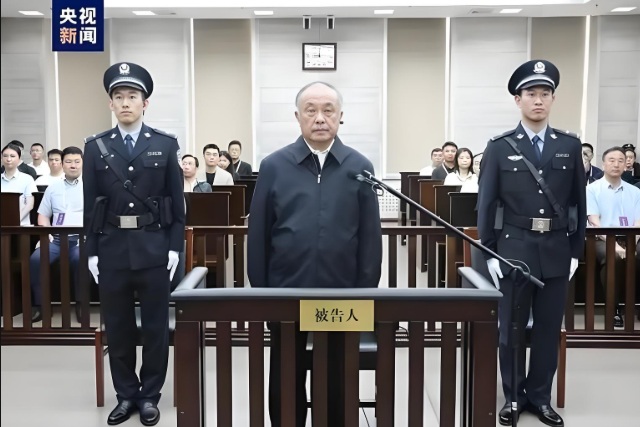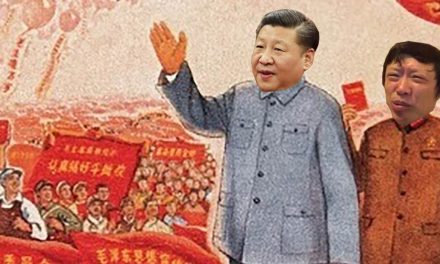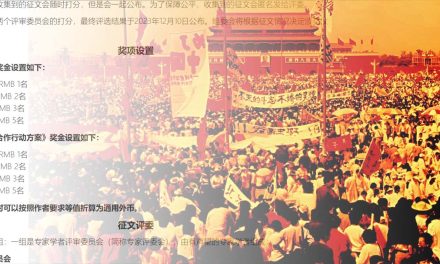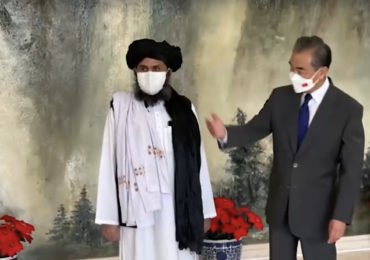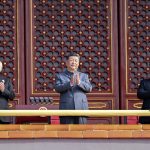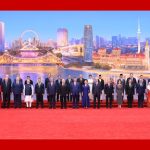By: Deyu Wang
When Beijing investigates a senior Tibetan, Hui, or Zhuang official for corruption, it is never just about corruption. The recent downfall of Qizhala, the ethnic Tibetan former chairman of Tibet; Lan Tianli, the ethnic Zhuang chairman of Guangxi; and Liu Hui, the ethnic Hui former chairwoman of Ningxia should be read less as legal justice than as political theater. For decades, the Chinese Communist Party (CCP) practiced liangshao yikuan—“fewer arrests, fewer executions, and more leniency”—when it came to minority cadres. That policy, introduced in the 1980s by Hu Yaobang, is now being buried. Hu Yaobang, who served as CCP General Secretary from 1982 to 1987, was a leading reformist credited with advancing China’s opening and adopting a conciliatory approach toward Tibet, including easing restrictions on religion and acknowledging past Party mistakes.
The sheer scale of Xi Jinping’s anti-corruption campaign continues to be striking. In 2024 alone, 889,000 Party members were disciplined, more than four times the number in 2013. But Xi’s campaign has always been more than a bureaucratic crackdown on graft. It is his primary tool for consolidating power, disciplining loyalty, and reshaping how China manages its most sensitive regions.
Minority officials have traditionally functioned as mediators between Beijing and their home constituencies, commanding patronage networks that could operate semi-independently from the center. Their removal dismantles these local power bases and signals that authority must flow vertically to the Party leadership, not laterally through ethnic ties. For the central government, such networks are dangerous because they can nurture loyalties that compete with the Party’s monopoly on political legitimacy. In Tibet, for example, the reverence once shown to reform-era cadres such as Wu Jinghua—an ethnic Yi official who, in the 1980s, promoted greater cultural autonomy and won genuine local popularity—was viewed in Beijing as a double-edged sword: his influence elevated trust in the Party at the time, but it also demonstrated how a local minority leader could become more trusted than central authorities. The memory of such figures underscores the CCP’s fear that ethnic officials with strong community backing could become focal points of alternative authority in regions already prone to unrest.
Now the message is unmistakable: ethnicity offers no shield, and traditions of leniency no longer apply. The principle of liangshao yikuan was once designed to acknowledge the CCP’s tenuous legitimacy in minority regions. Leniency created limited political space, helped contain unrest, and preserved the illusion of preferential treatment. But Xi has abandoned this pragmatic accommodation in favor of uniform discipline. “Equality under Party rules” may sound like fairness, but in practice it means erasing the few concessions minorities once held.
The choice of targets is also revealing. Tibet has long been a crucible of religious nationalism. Ningxia, with its large Hui Muslim population, sits at the intersection of domestic security and global counterterrorism narratives. Guangxi, home to the Zhuang, China’s largest minority group, lies on the border with Vietnam and is increasingly important in Beijing’s regional strategy. Removing their top leaders gives the center justification to install handpicked replacements, often Chinese Han—the dominant Chinese majority–officials whose loyalty to Xi outweighs any local ties.
The Party, of course, will not abandon its ritualized displays of diversity. Minority delegates will continue to appear at the National People’s Congress and perform in choreographed cultural events. But representation is increasingly symbolic. By disciplining and replacing minority elites, Beijing ensures that token diversity survives while political reliability—not community loyalty—determines who remains in power.
For Xi, this is also a deeply personal project. The anti-corruption campaign has been his sharpest weapon for eliminating rivals and consolidating his authority. Investigating minority officials, once semi-protected by unwritten rules of leniency, demonstrates again that even Party traditions are subordinate to his will. Each high-profile arrest reaffirms that the Party has only one ultimate arbiter: Xi himself.
The propaganda value is equally important. To the Han majority, these purges demonstrate that minorities are not immune to punishment, countering perceptions that ethnic regions, sustained by massive subsidies, enjoy unearned privileges. To minority populations, the campaign can be framed as cleansing corrupt elites who betrayed their communities. Either way, the Party portrays itself as a moral guardian above ethnic favoritism.
But the spectacle is also a warning. Minority officials are reminded that their loyalty must never waver—not to kin, religion, or community—but only to the center. Failure to comply will mean disgrace, not leniency. In Xi’s China, the principle of deterrence has replaced the principle of accommodation.
Seen in the broader context of Xi’s governance, the crackdown on minority officials is part of a larger project: the erosion of flexibility in managing diversity. Just as surveillance in Xinjiang and restrictions on Tibetan religion have sought to erase ethnic particularism, the extension of anti-corruption into minority elites signals that uniform control is now the rule. Political reliability outweighs cultural identity, and symbolic representation will continue only on Beijing’s terms.
The investigations of Qizhala, Lan Tianli, and Liu Hui are not isolated cases of graft. They mark the end of an era in which minority cadres enjoyed unwritten exceptions. Under Xi, there are no exceptions. Ethnicity, once a shield, may have become a vulnerability.
Dr. Deyu Wang is the Director of Citizen Power Initiatives for China

